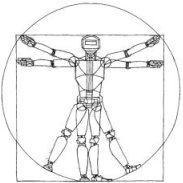Robotics: Science and Systems IX
Multi-Hypothesis Social Grouping and Tracking for Mobile Robots
Matthias Luber, Kai ArrasAbstract:
Detecting and tracking people and groups of people is a key skill for robots in populated environments. In this paper, we address the problem of detecting and learning socio-spatial relations between individuals and to track their group formations. Opposed to related work, we track and reason about multiple social grouping hypotheses in a recursive way, assume a mobile sensor that perceives the scene from a first-person perspective, and achieve good tracking performance in real-time using only 2D range data. The method, that relies on an extended multi-hypothesis tracking approach, also improves person-level tracking in two ways: the social grouping information is fed back to predict human motion over learned intra-group constraints and to support data association by adapting track-specific occlusion probabilities. Both measures lead to an improved occlusion handling and a better trade-off between false negative and false positive tracks. In experiments with a mobile robot and on large-scale outdoor data sets, we demonstrate how the approach is able to model social grouping and to improve person tracking by a significant reduction of track identifier switches and false negative tracks.
Bibtex:
@INPROCEEDINGS{Luber-RSS-13,
AUTHOR = {Matthias Luber AND Kai Arras},
TITLE = {Multi-Hypothesis Social Grouping and Tracking for Mobile Robots},
BOOKTITLE = {Proceedings of Robotics: Science and Systems},
YEAR = {2013},
ADDRESS = {Berlin, Germany},
MONTH = {June},
DOI = {10.15607/RSS.2013.IX.001}
}
